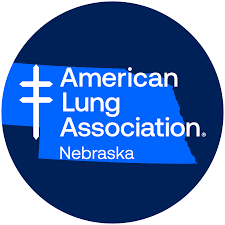Your Contribution Is Greatly Appreciated
We are all aware that asthma affects the lives of many Nebraskans. The Nebraska Asthma Coalition (NAC) is working hard to ensure those affected by asthma can live healthy, productive lives. As we do our part to bring asthma awareness and education to Nebraskans, we need your help to make our efforts go even further!
Your support is crucial to the NAC’s efforts across the state. Please consider donating to further our mission to improve health outcomes and quality of life for individuals affected by asthma through statewide collaboration. The NAC strives to accomplish this mission through collaboration, inclusivity, data-driven decision-making, and a commitment to addressing health disparities.
Thank you in advance for your contribution to this great work. We appreciate your support.
-The Nebraska Asthma Coalition Executive Committee
To donate, you may mail a check made out to "Nebraska Asthma Coalition" to the address below:
Children's Nebraska
Attn: Mitzi Cardona, IHE 4th Floor
8200 Dodge St
Omaha, NE 68114
If you would like to make an online donation, please contact us at neasthma@gmail.com and we will guide you through the donation process.









